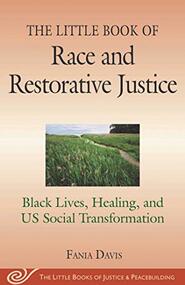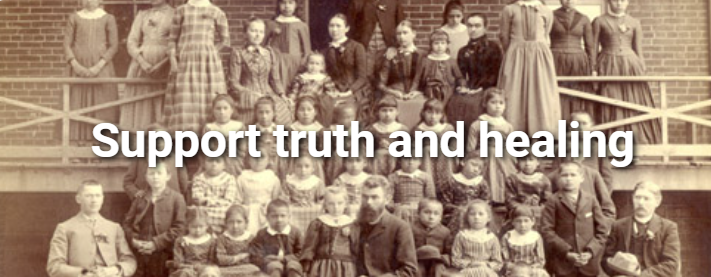|
Action: Urge Congress to support the Truth and Healing Commission on Indian Boarding School Policies in the U.S. Act, H.R. 5444 and S.2907.
1 Comment
Taylor Stewart from the Oregon Remembrance Project joined us on Sunday, September 12 to talk about his work. ORP was started in 2018 to help communities in Oregon unearth stories of injustice and undergo the necessary truth telling and repair required to reconcile instances of historical harm. Taylor reflected with us on the question, 'How do you reconcile a lynching.?' In particular, he talked about the connection between lynching and the death penalty.
PLEASE NOTE: The presentation below contains images that may not be appropriate for younger viewers. Carl Lentz, lead pastor of Hillsong East Coast, sits down with Emmanuel Acho to have an uncomfortable conversation about the role religion plays in fueling and/or killing racism. Emmanuel and Carl talk about how churches may be one of the biggest propagators of racism in the country. Racism can be closer to home than you think. How can you be a part of the solution rather than part of the problem?
The Justice Committee is going to start posting an article or a video more often (hopefully every week). So, we hope you will learn from them and grow in your mission to become more anti-racist.
This week, I am posting a video put out by FreedomRoad.us. It is about 1 hour 20 minutes. So, it is a bit long. However, it is a conversation between four leaders, teachers, and authors in the racial justice and reconciliation movement. These leaders include Dr. Brenda Salter McNeil who wrote Roadmap to Reconciliation 2.0 and her brand new book Becoming Brave, LaTasha Morrison who wrote Be The Bridge, Jemar Tisby who wrote The Color of Compromise, and Lisa Sharon Harper who wrote The Very Good Gospel. Their conversation includes topics such as their own stories of racial injustices, the work they do and the struggles they face, reparations vs. reconciliation, Black Lives Matter, the next generation, and church and politics. Like I said, it is a bit long, but it is power-packed. We can all learn from leaders such as these. Their hearts are towards helping to get the message out and advocate for systemic changes. Jane Bateman and The Justice Committee The Racial Justice Committee would like to invite you to the August conversation about race. We invite you to read the latest article on our blog site from the book The Little Book of Race and Restorative Justice by Fania Davis. Chapter 3 is posted on the blog along with questions to consider. We'll use those questions as the basis of our conversation. We hope you can join us on Monday, August 10 at 7:00 pm for the hour-long conversation.
To join please use the link below.  Ubuntu (Zulu pronunciation: [ùɓúntʼù])[1] is a Nguni Bantu term meaning "humanity." It is often translated as "I am because we are," or "humanity towards others," or in Xhosa, "umntu ngumntu ngabantu" but is often used in a more philosophical sense to mean "the belief in a universal bond of sharing that connects all humanity (https://en.wikipedia.org/wiki/Ubuntu_philosophy). The concept of restorative justice is the bringing of people together to address the wrongdoing and attempt to heal the harm. “While often mistakenly considered only a reactive response to harm, restorative justice is also a proactive relational strategy to create a culture of connectivity where all members of a community thrive and feel valued” (Davis, Fania E., 2019, pg. 25). Read Chapter 3 of The Little Book of Race and Restorative Justice by Fania E. Davis. Then, consider these questions.
“Within a talking circle, all members are equal and each one belongs to the circle, which itself represents the interconnectedness of its members and the cycles of life. The talking circle symbolizes a sacred space created where all who come, come to listen and respect the views of all others in the circle. A stick, stone, or feather (which symbolizes connectedness to the land) can be used to facilitate the circle. Whoever is holding the object has the right to speak and the others have the responsibility to listen” (https://facilitatoru.com/facilitation/how-to-use-talking-circles-for-deep-communication/). Schatz-Murkowski-Harris-Paul NDAA Amendment #2252 1033 Reform and Oversight Militarized law enforcement increases the prevalence of police violence without making communities safer. This amendment would restrict the transfer of the most militaristic equipment to law enforcement—including bayonets, grenades, asphyxiating gases, and high-caliber munitions—without prohibiting other equipment needed to assist law enforcement with carrying out their mission to protect and serve. Sample LETTER TEXT: As your constituent, I'm deeply concerned about the safety of my community and everyone in it, particularly those in black neighborhoods where police presence tends to be higher. That's why I'm writing to ask you to support restrictions on the Department of Defense's 1033 Program in this year’s National Defense Authorization Act (NDAA). For years, the Department of Defense has used this program to transfer billions of dollars of excess equipment to state and local law enforcement – including bayonets, grenades, militarized drones, and tear gas. These weapons of war have no place on our streets: they do not make us safer, and to the contrary, have been associated with increased use of force against and killing of civilians. And because black citizens live in overpoliced neighborhoods, they are at even greater risk. The bipartisan Schatz-Murkowski-Harris-Paul NDAA Amendment 2252 will promote community safety by restricting these transfers and by requiring crucial oversight and transparency. I urge you to vote YES. Thank you. Here are some discussion questions that go with the chapter: 1) How much energy do you expend trying to get people to believe that you are not a racist? Or do you believe that you are racist? 2) To which societal groups do you belong? Which groups give you advantage? Which groups disadvantage you? 3) Are there unearned advantages that you received when you were born? 4) Do you think there are common characteristics that white people share? 5) Has the discomfort of talking about racism ever kept you from talking about racism? Support People of Color Caucus agenda |
The Racial Justice Committee @ PMC
Archives
October 2021
Categories |

 RSS Feed
RSS Feed
